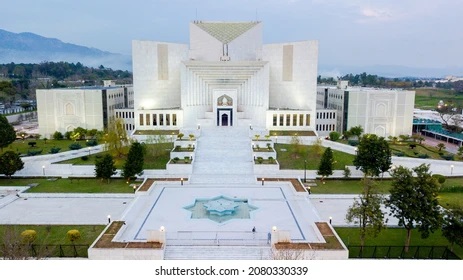Financial Crimes and the Need for Specialized Judicial Oversight in Pakistan
BUSINESSNEWS


Financial Crimes and the Need for Specialized Judicial Oversight in Pakistan
Following the 26th Constitutional Amendment, Pakistan has introduced new criteria for appointing high court judges under the Judicial Commission of Pakistan (Appointment of Judges) Rules, 2024. This reform offers an opportunity to appoint judges with specialized expertise in financial crimes, including money laundering, terrorism financing, and tax fraud.
In 2022, Pakistan was finally removed from the Financial Action Task Force (FATF) 'grey list' after four years of monitoring. While this was a significant achievement, the absence of a robust law enforcement and criminal justice system, coupled with inadequate judicial oversight in financial crime cases, could risk the country being re-added to the FATF grey list or facing similar sanctions in the future.
The IMF and World Bank have incorporated financial crime prevention into their mandates, emphasizing the need for a more effective judicial system in tackling these crimes. In April 2024, the IMF urged Pakistan to amend its tax laws to curb fraud and introduce a General Anti-Avoidance Rule to improve tax collection. Despite these recommendations, Pakistan continues to face challenges with its financial crimes handling.
The Supreme Court's recent decision in the Taj International (Pvt) Ltd case, which limits criminal proceedings without prior sales tax assessments, has sparked debate. While some view the decision positively, others argue that it may hinder tax collection efforts and disproportionately benefit the wealthy. Critics also point to a lack of accountability for those implicated in the Panama Papers scandal, where no substantial action was taken despite evidence of money laundering.
Further complicating matters, cases such as the Sarim Burney Welfare Trust's involvement in child trafficking and the Sindh Food Department’s wheat theft indicate connections between financial crimes like money laundering and other criminal activities. A more effective criminal justice system could prevent such frauds, enhance foreign investment, and boost confidence in the business sector.
Environmental crimes, often linked to corporate wrongdoing, also pose a major concern. High-profile disasters like the Bhopal gas leak and the Fukushima nuclear accident highlight the need for accountability. In Pakistan, private companies that have caused significant environmental damage remain unpunished, underscoring the importance of specialized training for judges in handling corporate crimes.
To address these challenges, Pakistan must continue updating its laws, particularly the Anti-Money Laundering Act of 2010 and the Anti-Terrorism Act of 1997, to meet FATF's criteria. Furthermore, the establishment of dedicated benches in high courts and the appointment of specialized judges capable of handling financial crime cases are crucial for ensuring justice and maintaining Pakistan's standing on the international stage.
The writer is an advocate at the Sindh High Court and a faculty member at the Department of International Relations, University of Karachi.
